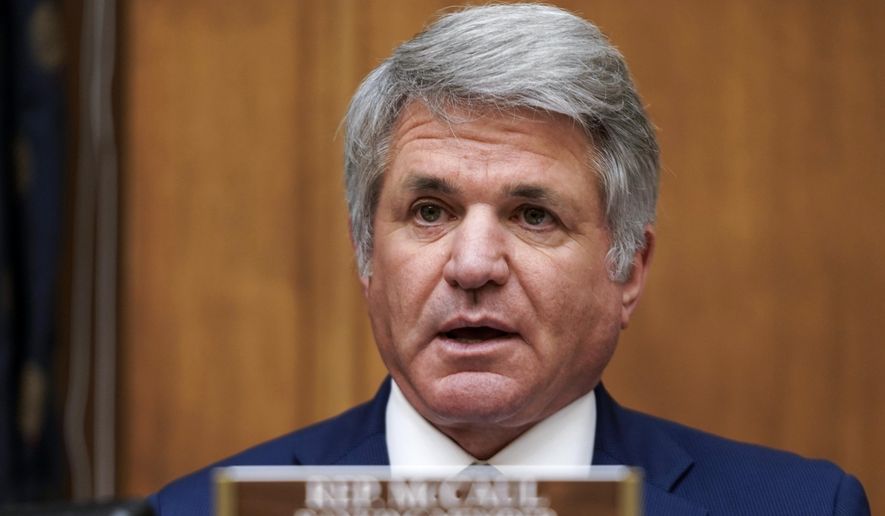PONTE VEDRA, Fla. — Federal indictments are plummeting even as the number of foreign espionage cases in the United States has increased, the top-ranking Republican on the House Foreign Affairs Committee said Thursday.
Texas Rep. Michael McCaul, the ranking Republican of the foreign affairs panel, cited the Justice Department’s elimination of its China-focused anti-espionage program last month, an initiative launched by the Trump administration in 2018, as evidence that the Biden administration is less concerned about issues related to foreign infiltration and influence operations.
Known as the China Initiative, the program was led by the Department’s National Security Division (NSD), which was responsible for countering nation-state threats to the United States. The now-disbanded initiative identified and prosecuted “those engaged in trade secret theft, hacking, and economic espionage” for Beijing. It also focused on protecting U.S. critical infrastructure against external threats via foreign direct investment and supply chain compromises, and countered covert efforts to influence the American public and policymakers without proper transparency.
Critics of the China Initiative said that it at times racially profiled targets and suffered a number of embarrassing reverses in court in the cases it brought.
“I met with the former head of the DOJ China initiative and FBI and this is going to send a very bad message to the U.S. attorneys that this is not a priority anymore. Well, espionage hasn’t gone away,” Mr. McCaul told The Washington Times in an interview at the GOP retreat in Florida where House Republicans are finalizing their midterm-year political agenda.
“In fact, espionage cases are going up, but the indictments — if you look at the prior administration, there’s 130 [indictments]. We’ve only seen eight indictments from this administration,” he added.
Mr. McCaul, who leads the Republican Conference’s China task force, was a prosecutor in the Justice Department who helped convict California businessman Johnny Chung in 1998 for funneling money into the 1996 Clinton campaign from Chinese military intelligence.
The Washington Times reached out to the Justice Department for comment. A top department official said in February that the China Initiative program was being folded into a larger campaign against espionage, in part because the name fueled a “harmful perception” that ethnic Chinese academics and professionals were being unfairly singled out for prosecution.
“I have concluded that [the China Initiative] is not the right approach to meet the threat in the coming years,” Assistant Attorney General Matthew G. Olsen said in remarks at George Mason University at the time. “Instead, the current threats demand a broader approach.”
Sen. Ron Johnson, Wisconsin Republican and member of the Senate Foreign Relations Committee, joined with Sen. Marco Rubio of Florida, the top Republican on the Senate Select Intelligence Committee, and six of their Republican colleagues, urging Attorney General Merrick Garland Thursday to reinstate the China Initiative.
“If DOJ mishandled particular cases, pursued cases without sufficient evidence, or otherwise acted in a manner that raised legitimate concerns about racial bias or other improprieties, those problems should be addressed on a case-by-case basis. The wholesale abandonment of a national security initiative because of unproven allegations of racial profiling should not happen,” the senators wrote.
The Justice Department last week charged five people working on behalf of China’s secret police for targeting, harassing and spying on Chinese nationals who reside in the United States “for their pro-democracy views.”
• Kerry Picket can be reached at kpicket@washingtontimes.com.




Please read our comment policy before commenting.